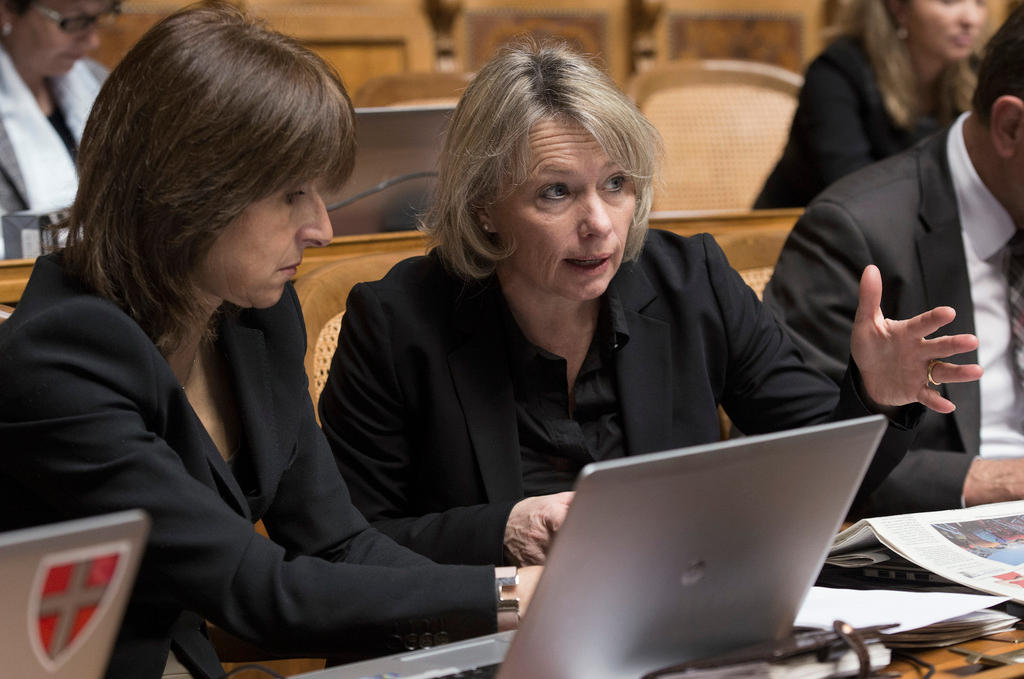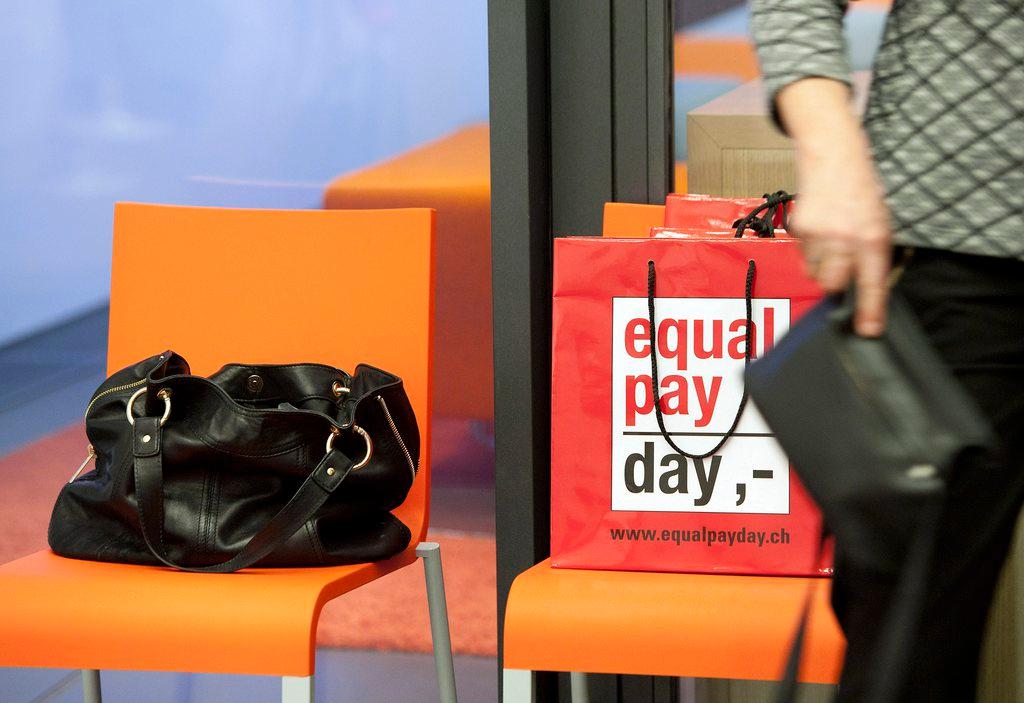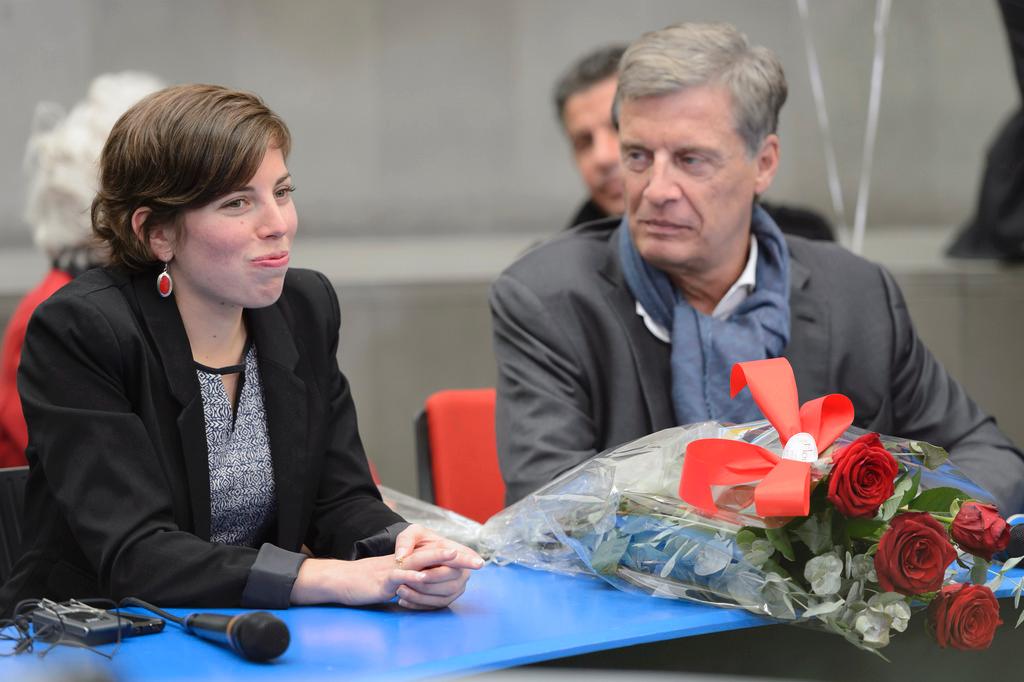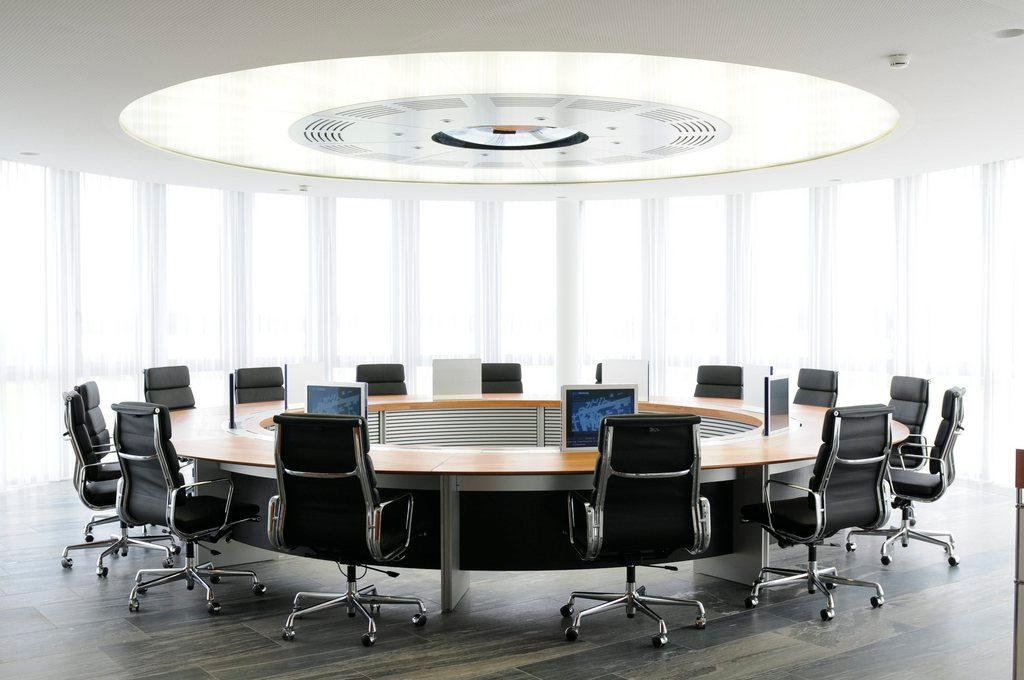Swiss ‘outcry’ reflects global study

A recent online campaign revealed that many women in Swiss parliament must contend with everyday sexism. Now, a first-ever study of parliamentarians worldwide shows the phenomenon strongly reverberates among at least two-thirds of the women who occupy these corridors of powers globally.
In Switzerland, an online campaign caused a firestorm on social media – and a swelling list of female politicians registering their reproach – after Andrea Giessbühler, a female parliamentarian from the conservative right Swiss People’s Party, said in an interview that “naive women are partially responsible for rape” and “reduced punishments could be justified” in those cases.
But the experiences of her fellow Swiss female parliamentarians, who were also reacting to the controversy over US presidential nominee Donald Trump’s comments about women, appear to be just the proverbial tip of the iceberg when placed in a global context.
A study released on Wednesday by the Geneva-based Inter-Parliamentary Union (IPU) showed more than 65% of women parliamentarians worldwide surveyed by the IPU reported being the victims of “humiliating sexist remarks” during their time in office. A quarter had been victims of physical violence because of their position in government, and 21% had experienced sexual violence. Another 32% had seen sexual violence committed against female colleagues.
Over the past few weeks, after Basel-based gender researcher Franziska Schutzbach and some of her colleagues began using the hashtag #SchweizerAufschrei, or “Swiss outcry”, on social media sites, people across Switzerland began offering everyday examples of sexism levelled against women.
Parliamentarian Min Li Marti of the left-wing Social Democrats chimed in with her own experience, saying she had been told by male colleagues that “this topic is just too complicated, maybe your husband can explain it to you”. (Marti’s husband, Balthasar Glättli, also serves in parliament).
Wenn dir der Ratskollege sagt, das Thema sei halt kompliziert, vielleicht könne mir das mein Mann später erklären. #SchweizerAufschreiExternal link
— Min Li Marti (@minlimarti) October 13, 2016External link
Marti’s fellow Social Democrat Mattea Meyer tweeted about “parliamentary ‘colleagues’ who snicker and ask when there will be naked photos of you”.
Die Rats"kollegen", die dich kichernd fragen, wann es Nacktbilder gibt von dir. #SchweizerAufschreiExternal link
— Mattea Meyer (@meyer_mattea) October 13, 2016External link
Many other female parliamentarians from Switzerland told the Blick tabloid of their experiences with sexual harassment on the job.
Claudine Esseiva of the centre-right Radicals said she has been directly propositioned by male members of both the House and Senate. Social Democrat Yvonne Feri reported similar advances made by journalists who asked her whether she wanted to sleep with them.
And the speaker of the House of Representatives, Christa Markwalder of the Radicals, says she’s been the victim of “sexist statements at the lowest level”.
Threats and recommended action
According to the IPU study, the situation abroad appears to also involve threats of physical violence against women parliamentarians. Nearly 45% of those surveyed said they had been threatened with death, rape, beatings or abduction.
One politician from Asia reported receiving threats about kidnapping her son, while another from sub-Saharan Africa said she is constantly asked whether she is a lesbian and “accused of being aggressive and a bad mother”. Nearly 40% of respondents said the harassment affects their ability to carry out their parliamentary mandates, with some reporting having to adjust their schedules and physical movements to avoid potential violence and intimidation.
About 60% of the survey respondents believe the sexist acts are due to clear-cut positions they had taken on specific issues, and 61% think the acts are meant to dissuade them and their female colleagues from continuing in politics, according to the IPU. Only about 40% of respondents reported having been targeted because of a political rivalry.
To counter and address harassment against female politicians, the IPU recommends that governments strengthen laws and parliamentary codes of conduct and that the media undergo sensitivity training with regard to reporting on women politicians. The study concluded that having more women in parliament “helps to change the political culture” and that “once the phenomenon is visible and recognized, solutions either exist or can be found”.
The IPU, an international organisation representing parliaments around the world, interviewed 55 female politicians from 39 countries for its first study on sexism in parliament. It also gathered data from 42 global parliaments about structures in place to prevent sexual harassment and violence.

In compliance with the JTI standards
More: SWI swissinfo.ch certified by the Journalism Trust Initiative




You can find an overview of ongoing debates with our journalists here. Please join us!
If you want to start a conversation about a topic raised in this article or want to report factual errors, email us at english@swissinfo.ch.